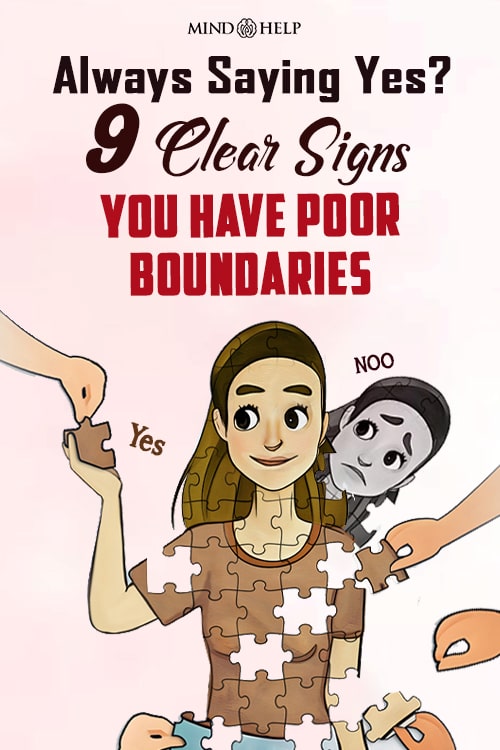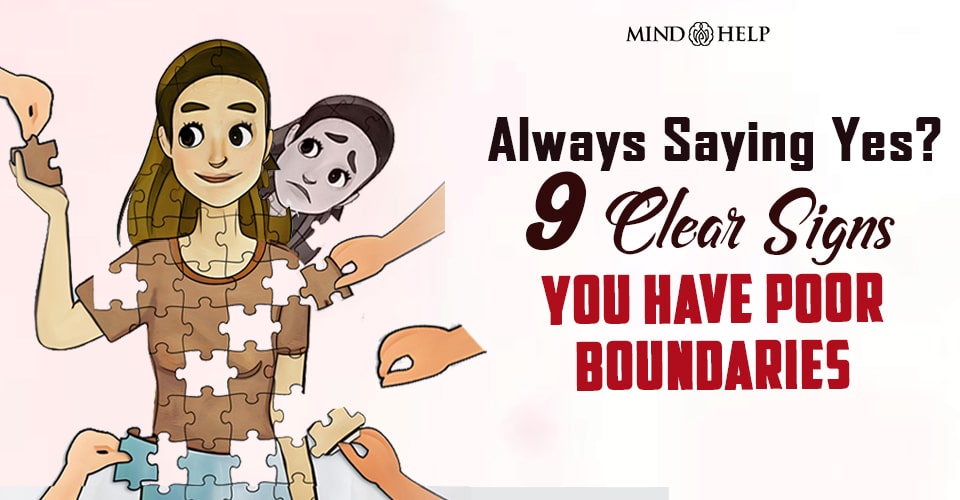Let’s begin with some quick questions: Do you struggle to speak up for yourself? Do you feel guilty for prioritizing yourself? Do you constantly wonder why your relationships aren’t fulfilling but exhausting? If you promptly (or even subconsciously) answered “yes” to any of these, these are some classic signs you have poor boundaries.
Personal boundaries act like your invisible guardian angel, helping you thrive emotionally, mentally, and physically. Poor boundaries can make you feel overwhelmed, taken advantage of, and worst of all: erode your sense of self-respect.
If you are struggling to set limits and overextending yourself just to be in the good books of people, it’s time you reclaimed your life. Let’s explore the 9 signs of unhealthy boundaries that are stealing your “main character” energy!
9 Clear Signs You Have Poor Boundaries
Here are the 9 typical signs of poor boundaries you need to be aware of:
1. You Can’t Say No (Even When You Really Want To)
Your to-do list might be overflowing, but you don’t step back from saying yes to favors, work tasks, or social invitations. You fear disappointing others and being labeled as selfish. This fear of being judged makes you push your needs aside.
Gradually, you start feeling exhausted and resentful for not showing up for yourself. Such behavior also makes people take your generosity for granted, which impacts your relationships.
Pro tip: You can’t change your patterns overnight. So, start small. Start by politely saying “No” to an extra chore or turning down an invitation you don’t want. Over time, you’ll gain confidence in setting limits. Remember, “No” isn’t selfish; it’s essential for your well-being.
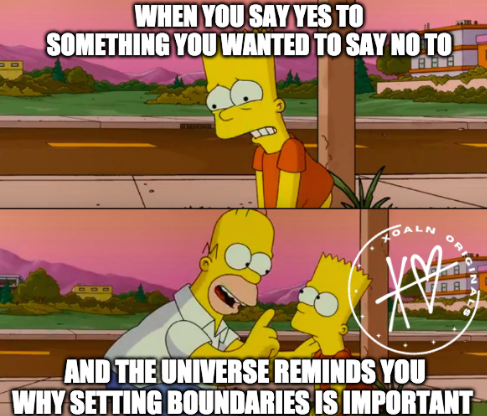
2. You People – Please (All the Time)
Your life must be turning upside down, but that doesn’t stop you from making everyone else happy. Initially, your people-pleasing tendency might make you feel good. But all the temporary approval and gratitude fade away as you start getting emotionally drained.
It’s time you let go of your fears of rejection and conflict, as they can harm the very connections you are trying to preserve.
Pro tip: Your needs are just as important as anyone else’s. Start practicing small acts of self-prioritization. Voice your preferences and reclaim your lost freedom. People who respect you will love the energy change.
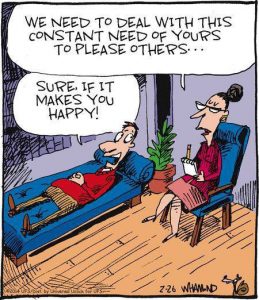
3. You Feel Guilty for Asking for Help
You tend to stay one step away from helping others, but the moment you feel the need to ask for help, that’s when your world comes crashing down! It’s one of the major signs of poor boundaries. This can lead to burnout, stress, and even isolation.
Honestly, asking for support doesn’t make you weak. It lightens your load and strengthens your bond with others, thus creating a safe emotional space for mutual care.
Pro tip: Start with low-stakes tasks. You can share your feelings with a trusted friend or ask your colleague for help on a project. At first, you might feel uncomfortable, but soon you will realize you are breaking down walls and learning to trust others.
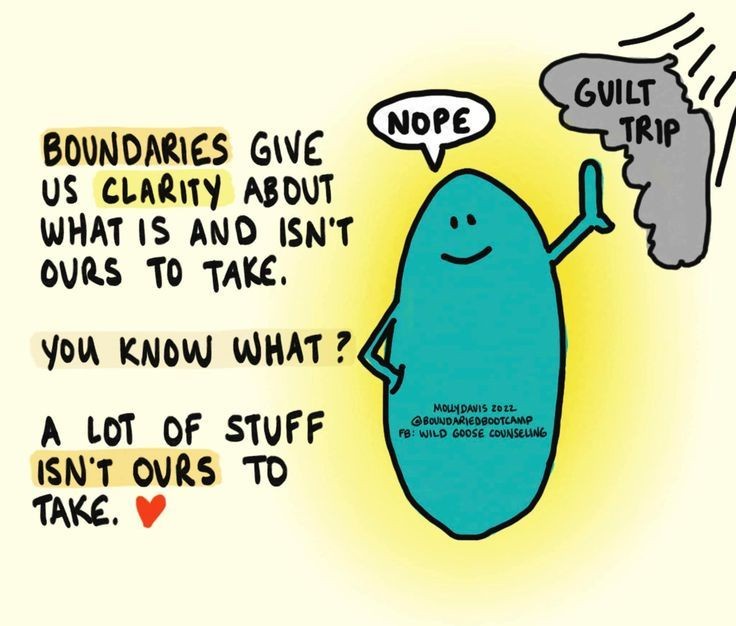
4. You’re Easily Manipulated or Taken Advantage Of
Let’s be real, if you are not setting healthy boundaries, people easily manipulate, exploit, and overstep without realizing how it impacts you. You struggle to defend yourself, fearing confrontation, and this makes you vulnerable to people.
Such poor boundaries leave you vulnerable to being taken advantage of. These don’t just drain your time or energy, but chip away at your self-worth.
Pro tip: Start noticing the patterns. Ask yourself, “Where am I giving more than I am receiving?”. For example, politely say, “I can’t help with that today, but I hope you get it sorted,” or let a friend know, “I care about you, but I can’t take late-night calls during the week.” Simply recognizing these imbalances is a powerful step towards retrieving your personal power.
Read: Anatomy Of A Manipulator: 10 Ways They Get In Your Head And Stay There
5. You Avoid Conflict at All Costs
If you keep quiet, nod along, and pretend everything is fine, even at times when you are subconsciously yelling, “No! That’s not what I want!”, it’s a strong sign you have poor boundaries.
Avoiding disagreements can feel safer, but suppressing your thoughts won’t make the problems go away. This just bottles up your frustration, paving the way for bitterness and emotional mess. A friendly reminder: Don’t let the short-term peace disrupt your long-term well-being.
Pro tip: See, it’s okay to disagree. It’s human to have different opinions, and that’s what makes us different. Express your thoughts with assertion and calm. You don’t need to be aggressive or keep apologising.

6. You Overcommit and Burn Out Easily
Overcommitting is one of the most common and telling signs of poor boundaries. You keep saying yes to multiple projects, requests, and household chores. At the end of the day, you are just left wondering how you ended up with zero time for yourself.
To tell the truth, you can’t be in everyone’s good books! Constantly overcommitting leaves you drained and overwhelmed. You may find yourself snapping randomly at your loved ones or feeling guilty for choosing rest over productivity.
Pro tip: Treat your time and energy as precious jewels. Schedule downtime into your week and check your plate before saying yes. Don’t be naive and remember, “Every yes you unwillingly say to others is no to yourself.”

7. You Frequently Feel Resentful
Are you always the one who picks up extra shifts at work while others clock out on time, or are you the friend who listens to everyone else’s problems but has no one checking in on you? When you are consistently taken for granted, resentment creeps in, making you feel annoyed most of the time.
You don’t voice it, but you carry the irritation internally and withdraw emotionally. That’s a big red flag of having unhealthy boundaries.
Pro tip: Pause and reflect, “Why am I feeling this way? Where do I need to draw the line?” Establish healthy boundaries that protect your peace and prevent your relationships from turning sour.
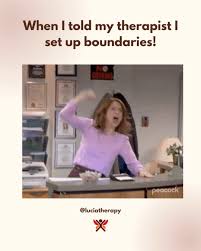
8. You Ignore Your Own Emotional or Physical Needs
Your needs completely fall off the radar. You might find yourself skipping meals or sacrificing your sleep in the name of being there for others. Your own desires are on the back burner, leaving you stressed.
These toxic patterns erode your mental and physical health, and you start feeling guilty for setting limits. You suffer silently because you fear you might let others down.
Pro tip: Throughout the day, check on your well-being. It can be as simple as drinking water, taking a short walk, or saying no to a request that feels overwhelming. If you don’t respect yourself, nobody else will.
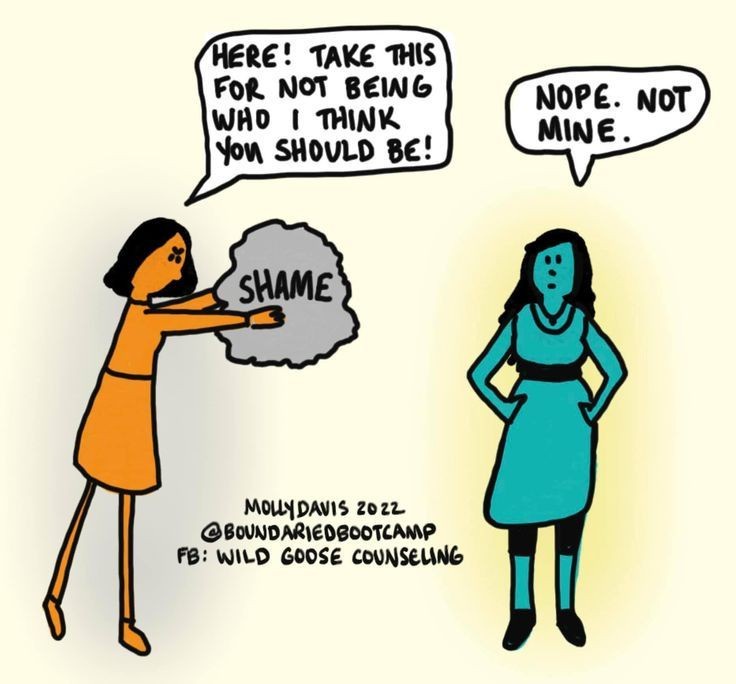
9. You Stay in Toxic or One-Sided Relationships
When your boundaries are weak, you tolerate disrespect and criticism because you fear the very idea of confrontation. For instance, maybe you have a friend who constantly belittles you under the guise of “joking,” but you laugh it off to avoid rocking the boat.
This trait comes from your fear of being alone. With time, you forget that you, too, deserve kindness and keep settling for the bare minimum. Such dynamics often keep you stuck in cycles of unhappiness.
Pro tip: You deserve bonds that uplift you. Involve yourself in connections that make you feel valued and energized. You can start by limiting time with people who drain you. Most importantly, learn to enjoy your own company instead of being overly codependent.
Read: 10 Obvious Signs You’re Dealing With A Man Child
Final Thoughts: Setting Boundaries Doesn’t Make You Difficult
Boundaries aren’t walls that shut people out. It’s your weapon to protect yourself from getting drained and mistreated. If you find yourself being treated more as a resource than a person, it’s one of the major warning signs you have poor boundaries.
Think of boundaries as a form of self-love that helps you grow. In the absence of limits, you lose pieces of yourself along the way.
So from today, say no when you mean to, ask for help when you need, and build connections that lighten you up. A friendly reminder: Boundaries don’t push people away; they pull the right people closer.

Frequently Asked Questions (FAQs)
What are poor boundaries?
Poor boundaries happen when you consistently put others’ needs ahead of your own, say “yes” when you want to say “no,” or tolerate behavior that drains or disrespects you. Simply put, it’s when you struggle to protect your time, energy, and emotions, leaving you feeling exhausted, resentful, or undervalued in relationships.
What causes poor boundaries?
Poor boundaries often stem from childhood experiences, low self-esteem, or fear of rejection and conflict. If you grew up believing love had to be earned through compliance or people-pleasing, you may carry that pattern into adulthood. Over time, this makes it harder to say “no,” assert your needs, or recognize your own worth.
What personality type has a lack of boundaries?
People with people-pleasing or codependent traits often struggle with boundaries. If you’re highly empathetic, conflict-avoidant, or overly focused on keeping others happy, saying “no” can feel almost impossible. This tendency often comes from a fear of rejection or being seen as selfish, which makes it easy to put others’ needs ahead of your own.
